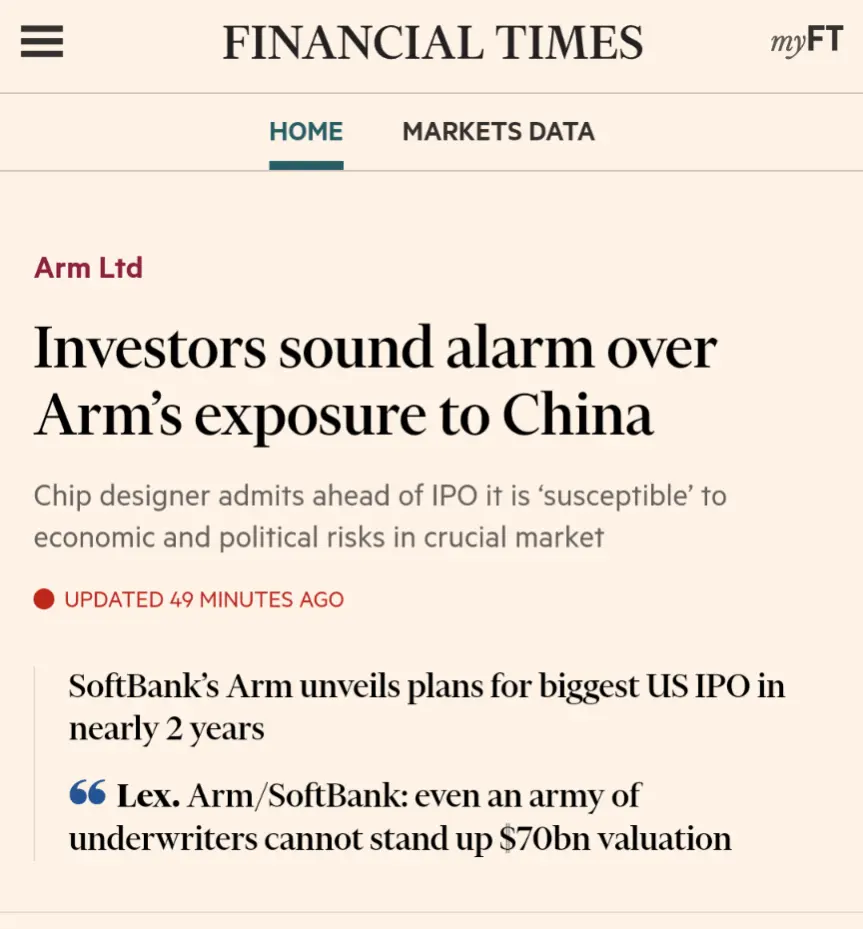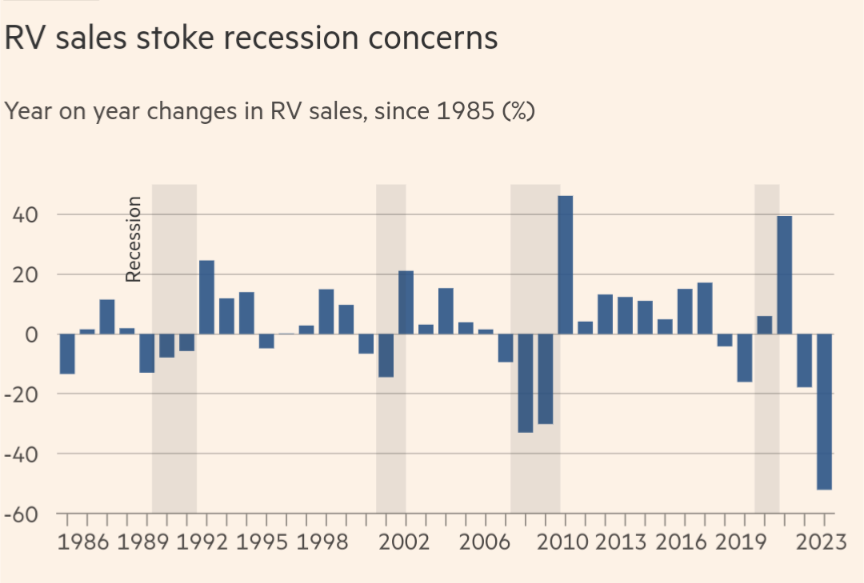Stock markets in 2023 are not quite what they seem.
At first glance, the pessimists are taking a beating. Investors and influential analysts had entered the year expecting 2022’s aggressive series of interest rate rises to bite. The consensus was for an economic recession to hit the US, dragging stocks down.
That has not happened, despite a series of regional bank failures in the spring that compounded the impact of rising rates. The American economy is still growing and the S&P 500 index, which measures the performance of US blue-chip stocks and sets the tone for investors around the world, has climbed more than 14 per cent this year. With two weeks still to go, this is already one of the best half-years for the index in two decades.
But this is a rally standing on top of some very slender stilts. Strip out just a tiny clutch of companies, all tech heavy hitters, and the index is going nowhere.
“Typically with things like this, when only a small number of stocks are doing well, you get overvaluation and speculative behaviour — everyone pumps money into these stocks, and we have another tech bubble like we did in the late 90s and early 2000s,” says Remi Olu-Pitan, multi-asset portfolio manager at Schroders. “You can argue that maybe we’re sowing the seeds of that.
Top-heaviness, particularly in US markets, is not new. “The big tech stocks in the S&P now are the same situation as oil companies were in the past, or the Nifty 50 in the 1960s,” says Frédéric Leroux, head of the cross-asset team at Carmignac in Paris — a nod to the craze that swept shares in a small number of fast-growing companies such as IBM, Kodak and Xerox higher before a heavy decline set in. “It’s a problem, but it’s a recurring problem.”
But by many measures, it has now reached striking extremes, masking a humdrum performance from the vast majority of stocks and complicating investment decisions both for those who pick stocks and those who prefer to track indices. Some warn it is unsustainable or a sign of treacherous market conditions ahead.
The performance of the S&P 500 index is now the most concentrated it has been since the 1970s. Seven of the biggest constituents — Apple, Microsoft, Google owner Alphabet, Amazon, Nvidia, Tesla and Meta — have ripped higher, gaining between 40 per cent and 180 per cent this year. The remaining 493 companies are, in aggregate, flat.
Big tech companies dominate the index to an unprecedented degree. Just five of those seven stocks represent nearly a quarter of the market capitalisation of the entire index. At $2.9tn, Apple alone is worth more than the UK’s top 100 listed companies put together.
The chipmaker Nvidia, riding the wave of investor enthusiasm over artificial intelligence and ripping up its own revenue guidance for the coming quarters in favour of more bullish predictions, has gained $640bn in market capitalisation just this year. That is almost as much as the combined market worth of JPMorgan and Bank of America, the two biggest banks in the US.
Ed Cole, managing director in discretionary investments at Man GLG, says the soaraway performance of a sliver of stocks has stirred a renewed so-called fear of missing out, or Fomo, among some investors.
“The danger is if you have gone all-in,” he says. “For people caught up in Fomo who have gone all-in on this very narrow theme, if you discover there are competitors that can enter the marketplace, it does not take very much for your position to reverse quite meaningfully.”
Index tracking and ESG
The AI explosion has been a big short-term driver of this concentration, but the clustering has deeper roots. Some of it simply reflects the US’s global leadership in consumer-facing technology, which over decades has created a series of highly profitable and highly durable companies of the sort that investors love. Even Warren Buffett, the consummate value investor, has bought shares in Apple and some other tech stocks.
As their market capitalisations grew, they constituted an ever-larger proportion of the S&P 500, which like most stock indices weights its constituents according to their market value. Two wider market trends compounded this. One was an accelerating wave of so-called passive investment, where funds simply seek to replicate the performance of an index by mirroring its composition. This meant that as these stocks went up, so too did their index weights, forcing funds to buy more of them.
The other was so-called ESG investment, a style that focuses on environmental, social and governance as well as financial factors. Growing interest in ESG has pushed investment dollars into tech at the expense of carbon-heavy sectors such as oil and gas. Active investors, passive investors, momentum chasers and ESG funds are often all chasing the same targets.
The thorny question is whether this is a problem.
It certainly gives an odd impression of market health. Michael Wilson, chief US equity strategist at Morgan Stanley and one of the most prominent Wall Street analysts warning of a pullback in stocks, says the winning streak by a “handful of mega-caps” is obscuring broader pain in the market.
“A major repricing has occurred . . . led by lower quality, cyclical, and small-cap stocks,” he said this month, reiterating that he expects the index to wrap up the year at 3,900, which would represent a 11 per cent drop from current levels.
The OECD is watching with interest, saying in recent research that the vast scale of a few companies, combined with the widespread use of investable indices in passive investment products, has increased the tendency for stocks to move together — a phenomenon that can amplify both positive and negative shocks.
It could also help to crimp small companies’ growth, the Paris-based international body warned. “OECD research primarily points to possible effects on smaller companies’ ability to access financing from public markets,” it said. “This can possibly limit the available financing available for smaller, innovative companies and new business models.”
Almost instinctively, this intensifying phenomenon is unnerving analysts and investors alike.
French asset manager Tobam has also long warned its clients that this concentration in tech stocks complicates the investment process for everyone from individual investors to big pension funds. It makes it impossible to diversify risks by tracking a broad index such as the S&P, but also tricky to be a stockpicker when only a small clique of stocks is performing well.



